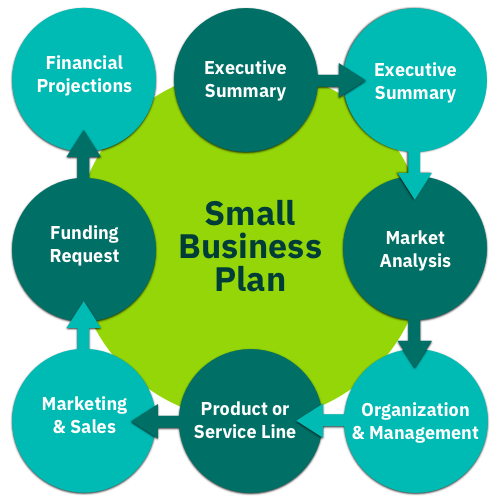Understanding the Basics of Business Plan Consulting

A business plan consultant is an outside expert who helps entrepreneurs and companies craft, refine, and implement their business plan. In practical terms, this professional brings specialised skills to the planning process, from clarifying your vision and goals to structuring the document and performing market analysis. Many consultants even leverage connections with investors or lenders, helping to align the plan with what funders expect. By offering expertise in areas like market research, competitive analysis, financial modelling, and strategic thinking, they turn a daunting writing task into a structured process.
Business Plan Consulting vs. DIY Business Planning: A key decision for any founder is whether to go it alone or hire outside help. The do-it-yourself (DIY) approach can work for some, especially when budgets are tight and you want complete control. DIY plans can save money and foster ownership of the plan, since you (and your team) write every word and crunch every number. ProjectCubicle warns that “without the expertise and guidance of a professional consultant, there may be limitations in conducting thorough market analysis, developing accurate financial projections, and crafting an effective overall strategy.”
Consultants bring specialised know-how that most entrepreneurs lack. They perform rigorous research, apply proven planning frameworks, and often catch blind spots that a founder might miss. Ultimately, the choice hinges on your situation: DIY gives you control and low cost, but risks gaps in strategy; hiring a consultant delivers expertise and polish, though at a higher price and with the need to share vision. As experts advise, weigh factors like time, experience, and your funding goals when deciding between these paths.
Why a Business Plan Is Crucial for Business Success
A well-crafted business plan is far more than a formality; it is the strategic backbone of your business. Contrary to the myth that only startups need business plans, experienced entrepreneurs emphasise that planning is critical at every stage. As one author points out, business plans “aren’t just for startups”; they help established and growing businesses clarify goals and adapt to changing needs.
In practice, writing a business plan forces you to think through your business model, market, and finances in detail. This structured thinking is invaluable even for incumbents: it identifies priorities for the coming year and aligns your team around clear targets. A veteran small-business consultant notes, “The planning that’s most important [is] not the plan itself” but the process of developing an annual plan, which “establishes priorities for the coming year and becomes the basis for action”. In other words, even if you eventually iterate away from the original plan, planning ensures you have tested ideas on paper before risking capital.
Planning is also the key to securing funding and partnerships. A robust plan demonstrates to banks, investors, or partners that you’ve done your homework and are committed. The U.S. Small Business Administration explicitly says a solid business plan helps new and growing firms “get funding or bring on new business partners,” because it gives investors confidence that they’ll “see a return on their investment”. That said, it’s worth acknowledging a contrarian perspective. Some Silicon Valley entrepreneurs build massive user bases with minimal initial planning, relying instead on rapid iteration.
However, these examples are exceptions. Planning provides a safety net for most businesses (especially SMBs and those seeking funding) to “make your mistakes on paper, rather than in real life,” as one veteran notes on. Even if the format is lean (one-page summaries, canvases, or slide decks), the principles of planning, understanding customers, costs, and competitive position remain the same.
Business Plans: Not Just for Startups
Many entrepreneurs wrongly assume business plans are only for brand-new ventures. As your business grows, seasoned professionals argue that planning becomes even more critical. Business plans help clarify what is working and what isn’t so that you can confidently make strategic pivots.
For example, a managing director of a planning consultancy insists that “business plans are not just for startups and are even more important for established businesses.” He explains that once a business has customers and revenue streams, a plan helps uncover operational assumptions you hadn’t considered as a new company. Well-crafted plans also guide mature firms’ expansions, new product lines, or market entries.
Practically speaking, a plan drives focus. One company founder noted that after years of gut-driven decisions, bringing in investors forced her to adopt a formal four-year strategic plan. The result was a more straightforward path to growth and a tool to communicate with stakeholders. Similarly, an SBA spokesperson emphasises that even existing businesses updating their strategy benefit from planning (for example, when applying for loans).
In short, whether you’re launching or scaling, the discipline of a business plan, however lean, helps set goals, assign resources, and measure progress.
The Power of Planning: Investor-Ready Documents
The SBA bluntly states that a good plan will “help investors feel confident that they will see a return on their investment”. In other words, a plan is your sales pitch on paper. It lays out facts and evidence to back up your projections. If you skip this rigour, you risk showing up empty-handed when investors ask probing questions.
Indeed, entrepreneurs report that pitching solely on intuition no longer convinces professional investors. One startup founder recalled that investors insisted on a strategic plan once they got serious about funding. Instead of saying “I have a gut feeling,” she must show charts, timelines, and financial forecasts. A pitch deck, a concise visual summary of your plan, becomes a must-have. A recent analysis of pitch decks notes they should “cover the key points of your business plan, the products and services you provide, high-level financial projections, and funding needs”. In short, consultants can help write your whole plan and translate it into investor-ready presentations. By the end, you should have a logical story backed by data so that your assumptions hold up when investors dig into the numbers.
Signs You Need Business Plan Consulting Services

Even experienced entrepreneurs sometimes need help. Here are three red flags that suggest professional business plan consulting could save you time and frustration:
- You’re Not Sure Where to Begin: If the prospect of writing a business plan feels overwhelming, you have ideas but no structure, that’s a classic sign to get help. Consultants excel at kicking off planning projects.
They typically start with your vision and goals and break the process into stages (market analysis, financials, etc.). An experienced consultant can ask clarifying questions you hadn’t thought of and map out a roadmap for the plan. As one business blog notes, consultants provide the “expertise, guidance, and support throughout the business planning process,” helping clients “define their goals, and create a roadmap for success”.
In practice, this means even if you’re unsure what research to do or what projections to make, a consultant will point you in the right direction. Trying to start from a blank page alone can lead to wasted effort or incomplete plans, whereas a consultant can organise the approach and give you structure.
- Investors Keep Asking for Changes: If you’re repeatedly revising your plan (or deck) to appease investors, it often means the document isn’t hitting the mark. Perhaps the logic or data isn’t aligned with investor expectations. Rather than spinning your wheels, an outside expert can provide a fresh perspective. Consultants have seen many pitches, so they can predict what investors want to see.
For example, if lenders say “your numbers don’t add up” or VCs ask “what’s behind this assumption,” it’s a clue that your financials or market reasoning need tightening. A consultant can audit your work: they’ll critically review the plan, ask the tough questions your board might ask, and suggest revisions. Even when entrepreneurs argue that they’re skipping formal plans, advisors note that investors “are still going to ask where you got your numbers and assumptions”.
The consultant’s role here is to help you answer those questions convincingly cutting down the back-and-forth and making your next pitch more polished.
- Your Financial Projections Are Weak: Financials are often the most challenging part of the plan, but they’re crucial. Your plan loses credibility if your projections feel like guesses or you can’t justify expenses and revenue forecasts. Consultants bring quantitative tools and experience to build robust forecasts. They use realistic growth rates, cost assumptions, and funding scenarios.
As one guide explains, consultants “develop financial models, forecasts, and projections” so that the plan reflects “realistic financial projections that support [your] business objectives and investment goals.”. In short, if you’re not confident in your budgeting, cash flow, and breakeven calculations, it’s wise to get professional help.
A consultant can double-check your math, adjust assumptions (for seasonality, market size, etc.), and ensure you haven’t over- or underestimated. This turns sloppy numbers into a convincing financial story, essential for convincing funders or making sound internal decisions.
What to Expect from Business Plan Consulting Services
If you hire a business plan consultant, you should anticipate a comprehensive, personalised process. Consultants typically start by understanding your vision and situation, then deliver a plan tailored to your needs. Expect the following core services in a quality consulting engagement:
– Customised Business Strategies: The consultant will develop strategies and recommendations that fit your business context. They don’t just hand you a generic template; they dig into what makes your company unique.
For example, leading consultants emphasise tailored solutions using industry-specific knowledge. You might get customised market-entry tactics, branding approaches, or operational roadmaps. One consulting firm states that they “approach each case from scratch” without ready-made solutions, ensuring each strategy addresses your goals.
In practice, if you’re a local retailer, the plan’s marketing section will focus on foot traffic and loyalty programs, whereas for a tech startup, the consultant might stress viral growth and software scaling. Their job is to make the plan as relevant to your business as possible.
- Market Research and Competitive Analysis: A crucial expectation is that your consultant will supply data and analysis on the market. This typically includes research on market size, customer demographics, and industry trends. Consultants use professional databases, surveys, or interviews to uncover insights.
For example, one consulting team explained that they conduct “rigorous research and data analysis” to identify target customers and help position offerings effectively. You should also get a competitive analysis: who else is vying for your customers, what are their strengths, and how can you differentiate? This section of the plan will be much stronger than what most entrepreneurs could assemble alone. By the end, you’ll have a clear picture of where your business sits in the landscape and a strategy to exploit gaps or defend against threats.
- Financial Forecasting and Modelling: A top consultant will deliver detailed financial projections. They’ll typically build spreadsheets forecasting revenues, costs, cash flows, and profits over a multi-year horizon.
This includes scenarios (e.g. best-case, worst-case) and assumptions documented in the plan. Good consultants explain each assumption: why you expect 15% annual growth, for instance, or how you arrived at cost-per-unit figures. They also create a funding model if you need investment, showing how much money is required and when. Legacy’s finance experts, for example, stress that thorough budgeting and cash-flow planning “allows organisations to make informed financial decisions” and manage risk.
In short, expect your consultant to turn your high-level ideas into complex numbers. The finished product should include income statements, balance sheets, and break-even analyses that look professional and credible.
- Investor Pitch Decks and Presentations: Beyond the written plan, many consultants help prepare pitch decks or executive summaries for investors. These slide decks or condensed docs distil the plan’s key points into a visual, presentation-friendly format. The goal is to spark investor interest.
According to business planning experts, a good pitch deck “provides a brief but informative overview of your business” and covers “the key points of your business plan”. In practical terms, your consultant might craft a 1015 slide deck highlighting the problem, solution, market opportunity, team, and financials in bullet form.
They may also coach you on how to present it. If you expect to meet investors or lenders, clarify early with the consultant that pitch-deck design and storyboarding are part of the deliverables. With professional guidance, your presentation will look polished and align closely with your plan’s details, so nothing contradicts.
Throughout this process, a good consultant should collaborate with you. They will ask questions, request input, and revise drafts based on your feedback. Some consultants work iteratively, sending plan sections for review; others may conduct workshops or interviews. Be prepared to share data (past financials, customer surveys, etc.) so the consultant can be accurate. Most engagements are time-bound (e.g. 48 weeks) and conclude with a final plan document (often 2040 pages) plus any slide decks.
How to Choose the Right Business Plan Consultant

Selecting the right consultant is critical. Consider these factors carefully:
Check Their Experience and Track Record
Look for proven expertise in business planning. The consultant should have relevant experience in both planning and, ideally, your industry or sector. As one business plan advisor emphasises, you want someone with a “track record of success working with clients in your industry or niche”.
Check how many plans they have prepared and whether those companies achieved their goals (e.g., got funding, grew revenues). Consultants who have seen similar models will anticipate challenges you may face.
For instance, a consultant who helped multiple restaurants knows what investors in food ventures look for. Don’t hesitate to ask how long they have been writing plans and whether they hold relevant credentials (e.g., MBAs, CFA) or have partnerships with financial analysts.
Veteran consultants often highlight metrics like “raised $X billion for clients” to demonstrate impact. While flashy numbers alone aren’t everything, they signal experience. Ultimately, prioritise depth of relevant experience and measurable results over sleeker marketing.
Review Their Portfolio and Past Clients

A strong consultant will be transparent about their past work (while respecting client confidentiality). Ask to see samples of previous business plans (sanitised if necessary) or excerpts. Even more importantly, request references or testimonials from past clients. This is an industry best practice: contact a few former clients and ask about the consultant’s professionalism and outcomes. As one hiring guide advises, references can give insights into the consultant’s reputation, reliability and quality of work. Did clients find the consultant responsive? Did the finished plan secure a bank loan or investors? Did the consultant “over-deliver” by providing additional market data or follow-up support? Hearing unfiltered feedback will help you avoid disappointments. Also, check if they have industry-specific case studies: for example, a consultant who has helped tech startups may highlight a sample plan for a SaaS product. If you see names of known companies (or at least the sectors) in their portfolio, that’s a positive sign.
Assess Communication and Collaboration Skills
Even the most competent consultant won’t help if communication fails. During initial conversations or interviews, evaluate how well the consultant listens and responds. Are they asking insightful questions about your business, or mostly giving canned answers? A good consultant should be curious about your vision, willing to adapt their process, and able to explain complex ideas simply.
According to one guide, you should “choose a consultant who communicates effectively and collaborates closely with you throughout the planning process”. In practice, they update you on progress, promptly answer questions, and genuinely consider your feedback.
Note your first impression: did they seem genuinely interested and quickly grasp your business context? Poor communication early on often predicts frustration later. Also consider logistical compatibility: do they use communication tools (video calls, shared documents) that you’re comfortable with? Ultimately, hire someone you trust and feel at ease working with, since you’ll share sensitive information and spend much time together.
Understand Their Approach to Customisation
Not all consultants work the same way. Some may start by handing you a generic template, while others tailor the plan to your needs. It’s wise to clarify their methodology up front. Ask how they gather information (interviews, questionnaires, external research) and how they ensure the plan reflects your unique value proposition.
Beware of consultants who rely heavily on a one-size-fits-all template; their work may feel superficial. By contrast, many top firms pride themselves on building each document “from scratch”.
They tailor their deliverables to your strategy, culture, and audience. For example, if you expect to apply for an SBA loan, the consultant should mention SBA-specific requirements; they should know the difference if you’re targeting venture capital. A customised approach should involve an initial discovery phase and multiple feedback rounds. Inquire about their revision policy: how many drafts are included, and how do they handle changes?
A consultant who rushes to finalise the plan without incorporating your input is a red flag. You need a process that melds their expertise with your vision. Asking about past plans in your industry will also hint at how much they customise. Ideally, you want someone flexible to make your business plan rather than just plugging data into a generic framework.
Common Mistakes to Avoid When Hiring a Consultant

When choosing a consulting service, some pitfalls can undermine your success. Two of the most common ones to avoid are:
- Focusing Only on Price: It might be tempting to pick the cheapest consultant, but this often backfires. Experts warn that “the lowest fee is rarely the best deal.”.
Extremely low-cost plans may lack depth or require many revisions. Instead, emphasise value: consider a consultant’s track record and expertise first, then their fees. Investing more in a quality service often pays off through a better plan and smoother process. Of course, you should set a realistic budget, but don’t let price be the sole criterion.
Evaluate proposed costs against the scope of work. A reputable consultant will give a precise estimate with deliverables, so you understand precisely what you’re paying for. As one hiring guide advises, ensure the consultant’s fees are “transparent, reasonable, and competitive”. That means agreeing on a fixed price or budget that reflects the plan’s complexity. If a quote seems too good to be true, verify the details (maybe they are cutting corners or outsourcing work).
A well-crafted plan can help raise or save tens of thousands of dollars, so paying enough to get it right usually makes sense.
- Ignoring Industry Experience: A fancy credential means little if the consultant doesn’t understand your market. A standard error is hiring someone with broad consulting chops but no sector-specific background. As one strategic consultant cautions, a strong resume “doesn’t always translate to practical value” if it lacks hands-on experience in your field.
Advice from the wrong context can be worse than no advice at all. For example, hiring a consultant specialising in retail to write a biotech plan could lead to unrealistic growth assumptions or overlooked regulatory factors. Always check whether the consultant has dealt with businesses like yours to avoid this.
Ask about their past clients or roles: have they worked in your industry or with similar business models? Relevant case studies are a plus. If they haven’t, be cautious; at the very least, ensure they conduct thorough research or partner with someone with domain expertise.
Aligning expertise with your needs is crucial: consultants who “understand your industry’s landscape” can offer more actionable, realistic solutions. Don’t skip this step: even brilliant consultants will struggle if they don’t speak your industry’s language.
Final Thoughts
Choosing the exemplary business plan consulting service is a strategic decision that can shape your company’s future. This isn’t just about handing off work; it’s about finding a partner who understands your vision, challenges assumptions, and helps you craft a concrete path forward.
Experienced advisors stress that careful vetting is essential. As one consulting advisory notes, the decision “demands careful evaluation of multiple factors, expertise, cultural fit, and a clear understanding of your project objectives”. Invest time defining what you need (and why) and interviewing candidates against those criteria.
The right consultant won’t just write a document; they will strengthen your overall strategy, challenge your assumptions where needed, and leave you with a plan that truly reflects your goals. By focusing on value, communication, and customisation (not just price) and demanding evidence of impact, you ensure that the consultant you choose delivers a plan that can guide your business to lasting success.








